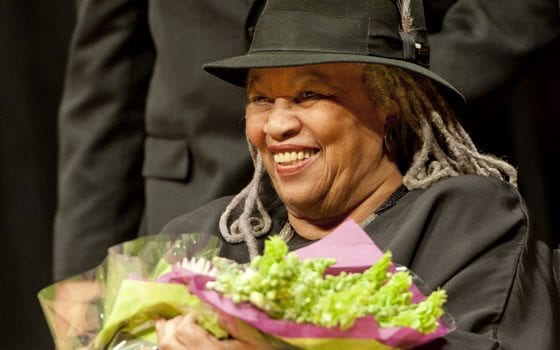

The Nobel Laureate Toni Morrison gave a 40-minute public lecture in Cambridge last week. It was a chance for many to hear her speak openly about goodness and its function in her writing.
According to Morrison, illustrations of goodness in books and short stories today are given few words. “Evil has a blockbuster audience,” she said. “Goodness lurks backstage. Evil has vivid speech, and goodness bites its tongue.”
Morrison talked about how her own work is helping to resuscitate goodness by giving it back its life, language and moral clarity. “When [goodness] appears,” she said, “it is always with a note of apology in its hand. For every To Kill A Mockingbird, there is Wise Blood or A Good Man Is Hard To Find, striking goodness down with a well-honed literary axe.”
Her lecture examined three different areas of scholarship on goodness. The first revealed that some scholars viewed goodness as a habit of mind, something learned, like the white priest in A Mercy, her ninth novel, who taught female slaves how to read despite the penalties for committing such a bold act of goodness.
Her second area of research looked at goodness as narcissism or doing good to make one’s self look better, which she explained is mirrored in Soaphead Church, a character who appears in her first novel, The Bluest Eye.
“Determined to erase his self-loathing,” said Morrison, “he chooses to give or pretend to give blue eyes to a little girl in need of them.”
The third area of goodness Morrison focused on is what she called “unquestioning compassion” or having mercy on someone who is the least deserving of it. Morrison recalled the trio of female characters that she created in A Mercy, and explained how they nursed and cared for the male character Vaark, who had great contempt for each of them.
“These women,” said Morrison, “did so out of a responsibility to God. They did not want to meet their maker, and have nothing to say when he asked, ‘What have you done?’”
Morrison’s appearance in Cambridge was made possible by The Ingersoll Fund, which presents a free public lecture on the immorality of man each year at Harvard University.






